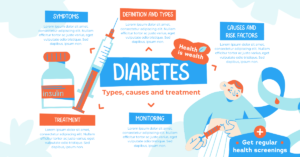In the complex world of healthcare, there’s often more than meets the eye. While doctors are dedicated professionals committed to our well-being, certain aspects of health and medicine remain shrouded in mystery or simply go unmentioned during routine check-ups. This article delves into some lesser-known health facts that could significantly impact your well-being, offering insights that might surprise even the most health-conscious individuals.
The Power of Lifestyle Changes
Many doctors focus primarily on prescribing medications to treat symptoms, but the profound impact of lifestyle changes often goes undiscussed. Simple modifications in diet, exercise, and sleep patterns can sometimes be as effective as medication in managing chronic conditions. For instance, adopting a Mediterranean diet has been shown to reduce the risk of heart disease, stroke, and type 2 diabetes. Regular physical activity, even in small amounts, can dramatically improve mental health and cognitive function. These lifestyle interventions are often overlooked in favor of quick pharmaceutical solutions, yet they hold immense potential for long-term health improvements.
The Overuse of Antibiotics
While antibiotics are life-saving in many situations, their overuse has led to a global health crisis. Antibiotic resistance is a growing concern that many doctors hesitate to discuss in depth with patients. Each time we use antibiotics unnecessarily, we contribute to this problem. Viral infections, which are not treatable with antibiotics, are often mistakenly prescribed these medications. This not only fails to address the underlying issue but also weakens our natural immune response and contributes to the development of superbugs. Patients should be encouraged to ask whether antibiotics are truly necessary for their condition and to explore alternative treatments when appropriate.
The Importance of Gut Health
The gut microbiome plays a crucial role in our overall health, yet it’s a topic that doesn’t always receive the attention it deserves in medical consultations. The balance of bacteria in our digestive system influences everything from our immune function to our mental health. Conditions like depression, anxiety, and even some autoimmune diseases have been linked to gut health. Incorporating probiotic-rich foods into our diet, reducing stress, and avoiding unnecessary antibiotics can all contribute to a healthier gut microbiome. This holistic approach to health, focusing on the gut-brain connection, is an area where conventional medicine is only beginning to catch up with emerging research.
The Impact of Environmental Toxins
Our environment is filled with toxins that can have significant impacts on our health, yet these are rarely discussed during routine check-ups. From the chemicals in our cleaning products to the pollutants in the air we breathe, we’re constantly exposed to substances that can affect our hormones, immune system, and overall well-being. While it’s impossible to avoid all environmental toxins, being aware of their presence and taking steps to minimize exposure can make a substantial difference in long-term health outcomes. Simple changes like using natural cleaning products, filtering water, and choosing organic produce when possible can reduce our toxic load.
The Role of Stress in Disease
While most of us are aware that stress isn’t good for our health, the full extent of its impact is often underestimated. Chronic stress can lead to a host of physical ailments, from heart disease to digestive issues and accelerated aging. The body’s stress response, when constantly activated, can suppress the immune system and increase inflammation throughout the body. Yet, stress management techniques are rarely prescribed with the same urgency as medication. Practices like meditation, deep breathing exercises, and regular physical activity can significantly reduce the harmful effects of stress on the body and mind.
The Importance of Sleep
Sleep is often viewed as a luxury in our fast-paced society, but it’s a crucial component of good health that deserves more attention from healthcare providers. Chronic sleep deprivation has been linked to a myriad of health issues, including obesity, diabetes, cardiovascular disease, and mental health disorders. Despite this, sleep habits are often overlooked during medical consultations. Establishing good sleep hygiene, such as maintaining a consistent sleep schedule and creating a restful environment, can have profound effects on overall health and well-being.
I remember a personal experience that highlighted the importance of these often-overlooked health factors. For years, I struggled with chronic fatigue and recurring infections, visiting multiple doctors who prescribed various medications with limited success. It wasn’t until I took a holistic approach to my health, addressing my diet, stress levels, and sleep habits, that I began to see significant improvements. This experience taught me the value of looking beyond conventional medical advice and considering the broader picture of health and wellness.
In conclusion, while modern medicine has made incredible advancements, there’s still much to be gained from a more comprehensive approach to health. By being aware of these often-unspoken health truths and taking a proactive role in our well-being, we can work in partnership with our healthcare providers to achieve optimal health. Remember, true wellness involves more than just treating symptoms; it requires addressing the underlying factors that contribute to our overall health and vitality.



